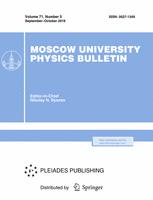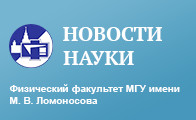Рассмотрены системы связи с OFDM-сигналами в сравнении с классическими системами связи на базе амплитудной, частотной и фазовой видов модуляций. Исследована возможность использования в данных системах связи вейвлет-преобразования вместо преобразования Фурье. Произведено сравнение принятой приемником системы связи информации для случаев с вейвлет- и Фурье- базисами. Показано, что вейвлет может обеспечить выигрыш в борьбе с селективными частотными замираниями, так как информация в таком сигнале не локализована в частотной области и не размыта во временной. Таким образом, показана возможность создания новых систем связи, где оптимальные параметры системы не распределены по разным алгоритмам, таким как кодирование с перемежением, OQAM-IOTA, FBMC и другим, а сосредоточены в одной функции вейвлет-преобразования.
07.90.+c Other topics in instruments, apparatus, and components common to several branches of physics and astronomy
02.70.-c Computational techniques; simulations
02.10.-v Logic, set theory, and algebra
$^1$Микроволновая электроника\
$^2$Московский государственный университет им. М.В. Ломоносова, физический факультет



